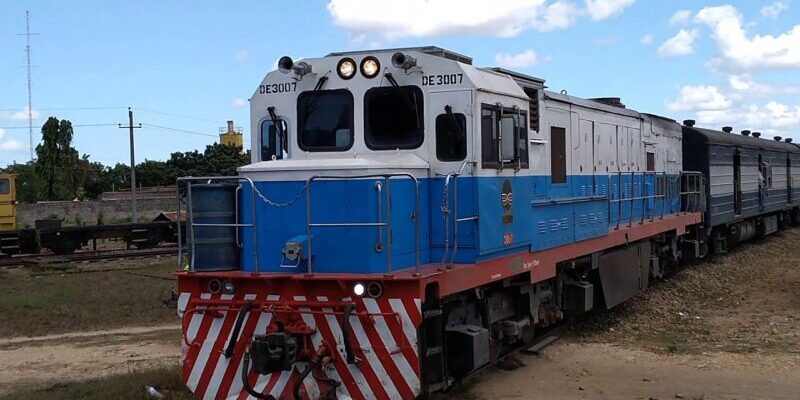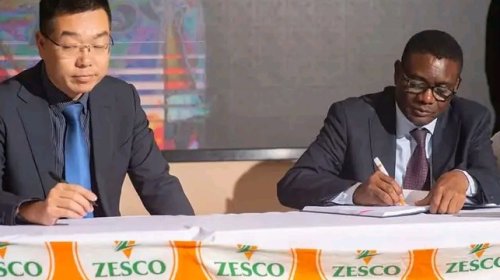Trade Expert Applauds Agreement to Revitalize TAZARA Railway
Trade expert Gilbert Nkamba has commended the recent tripartite agreement between Zambia, Tanzania, and China to upgrade and revitalize the TAZARA railway line.
The railway, which connects Zambia’s Copperbelt mines to the Tanzanian port of Dar Es Salaam, was originally constructed in the 1970s but has since fallen into disrepair.
Last week, President Hakainde Hichilema signed an agreement with his Chinese and Tanzanian counterparts to restore the line, with China committing $1 billion in investments to enhance the export of Zambia’s critical metals.
“Revitalizing TAZARA will attract foreign direct investment in heavy machinery, which is crucial for boosting regional manufacturing and industrialization,” said Mr. Nkamba, who also serves as Chief Chitimbwa II of the Lungu people in Northern Province.
He further noted that the revitalization would inevitably lead to a surge in trade between Zambia and Tanzania, driving economic growth in the region. “As gross domestic product increases, countries in this region will experience accelerated economic development,” he added.
Chief Chitimbwa also praised President Hichilema and Tanzania’s President Samia Suluhu Hassan for their efforts in securing the deal. “They did an excellent job in advocating for the revitalization of TAZARA,” he told ZANIS.
READ MORE HERE:ZAMBIA, TANZANIA, AND CHINA SIGN AGREEMENT TO REVITALIZE TAZARA RAILWAY
The TAZARA line, which links Zambia’s mines on the Copperbelt with Tanzania’s main port of Dar Es Salaam, holds significant potential for improving copper exports to China, the world’s largest consumer of the metal.
The TAZARA railway’s connection to the Indian Ocean complements the US and EU-backed Lobito Corridor, which links Zambia to the port of Lobito on Angola’s Atlantic coast. The US has recently announced plans to extend this railway to Tanzania as well.
Global copper demand is projected to increase by 2 million tonnes by 2030. President Hichilema has set ambitious goals to expand Zambia’s copper production to 3 million tonnes within the next decade, positioning the country to capitalize on the global transition to electrification and green energy.
![]()





